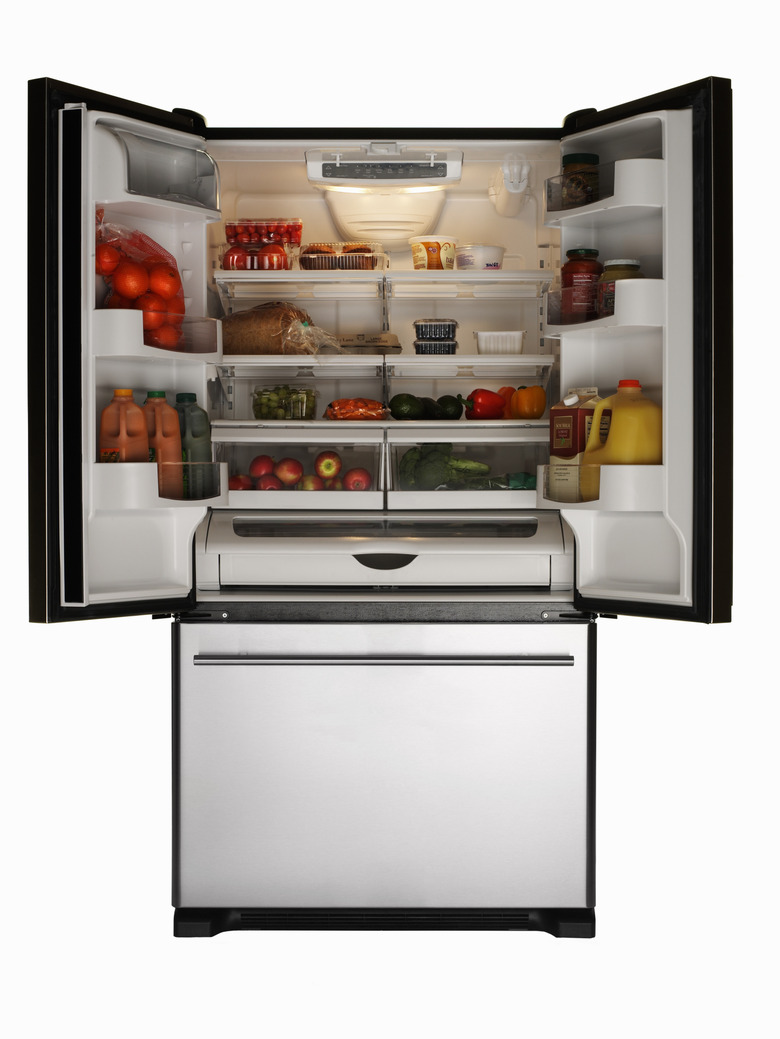What Causes A Fridge To Trip A Circuit?
From improper grounding to overloaded circuits, a refrigerator can cause an electrical circuit to be tripped in plenty of ways. Keep in mind that a tripped circuit is actually a good thing. It keeps more serious problems like fire or electrocution from developing. If you're comfortable with basic electrical troubleshooting, you can check out a few things yourself before calling a professional electrician for a more thorough inspection. Keep in mind that the fridge itself might not actually be causing the circuit breaker problem.
Overload
Overload
One of the most common reasons for a breaker to trip is an overloaded circuit, which simply means that a greater demand for electricity is being placed on the circuit than it can deliver. If the circuit your fridge is on keeps tripping, unplug everything else from it to see if the refrigerator is the problem. Unplugging other high-demand sources from the circuit might be all that is needed to find a solution. If the circuit continues tripping with only the fridge plugged in, more investigation is needed.
Short Circuit
Short Circuit
A short circuit occurs when two wires inside either an outlet or appliance touch one another, creating a surge of electricity that causes the breaker to trip. If you plugged the refrigerator in immediately prior to the breaker throwing itself, unplug the appliance, and plug in something else. If the second appliance works, the source of the short circuit is likely in the fridge itself. If nothing works when plugged into the outlet, remove the receptacle cover on the wall and visually inspect the wires inside to see if there is an obvious problem. Keep in mind the trouble might be in the wall or at the breaker box itself.
Worn Out
Worn Out
Like anything else, the parts and materials of a house's electrical system can become worn out, especially in decades-old buildings. Wires become brittle or rusty, and the protective insulation around them can become thin, leading to a short circuit. The prongs on your refrigerator cord might bend, become rusty or work themselves loose within the appliance power cord. Lastly, the metal and plastic components of the breaker box itself can become loose and faulty over time.
Considerations
Considerations
Remember that an improperly grounded appliance like a refrigerator can actually become electrified, causing the circuit breaker to trip. This knowledge shouldn't make homeowners paranoid but rather encourage them to spend a bit of time devoted to periodically inspecting the electrical connection between appliances and house's electrical wiring. If you regularly experience thrown breakers, there's a problem somewhere. Don't ignore it.
